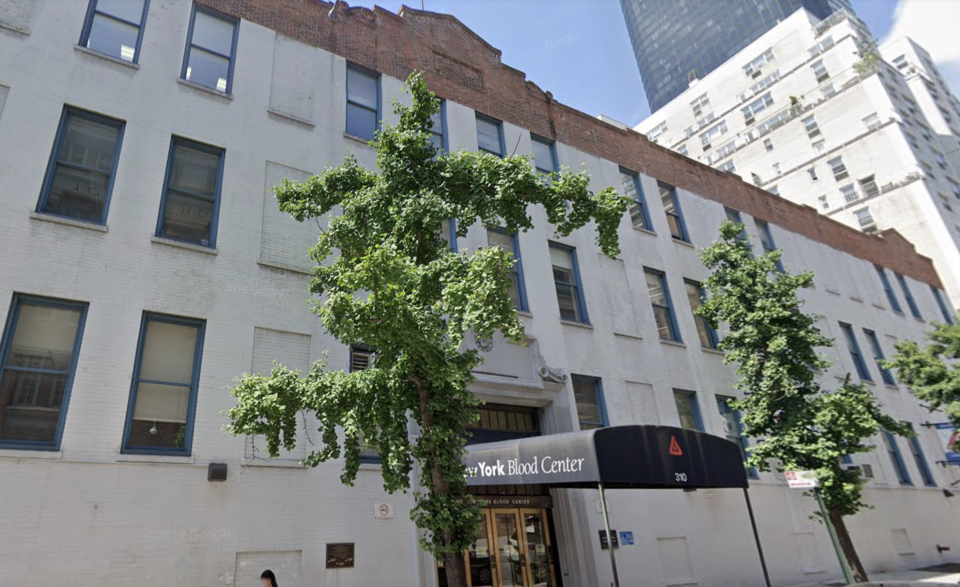NY Blood Center Plots Major Upper East Side Expansion
UPPER EAST SIDE, NY — The New York Blood Center announced plans Tuesday for a major expansion of its Upper East Side headquarters, calling for its existing East 67th Street building to be replaced with a glassy, 16-story tower.
The new facility will serve as a state-of-the art life sciences hub that will help further the Blood Center's mission, including its prominent role in the city's response to the coronavirus pandemic, according to officials from the nonprofit.
The organization plans to demolish its current three-story brick building at 310 East 67th St., which was built in 1930, and which the Blood Center says has physical limitations that prevent it from expanding key research programs.
Zoning approval will be needed for the Blood Center to move forward with the 600,000-square-foot campus, which is currently in the early stages of the rezoning process, according to a spokesperson for the Blood Center and Longfellow Real Estate Partners, the project's developer.
They hope to break ground in 2022, once the land use review process is complete, and aim to wrap up construction by 2026.
The Blood Center and Longfellow plan to meet with the neighborhood's Community Board 8 to go over the project, the spokesperson said, adding, "We are committed to working with the community on a project that works for the neighborhood."

The first five floors of the new headquarters, which has been dubbed Center East, will be occupied by the Blood Center, while the remaining floors will be leased out to other tenants including startups and venture capital firms.
Mayor Bill de Blasio's administration is supporting the project, as the city seeks to remake New York into a public health mecca as part of its pandemic recovery plan, according to the Wall Street Journal, which first reported on the expansion.
Much of that development is centered on the Upper East Side, where other ambitious expansion projects including one at Lenox Hill Hospital have provoked neighborhood controversy.
Manhattan Borough President Gale Brewer, often a skeptic of major building projects, released a statement Tuesday backing the Blood Center expansion, calling it "a proposed solution that will make us both more resilient in the face of future pandemics and provide an economic engine that will be essential to our City’s success moving forward."
Related coverage: Recovered COVID Patient Meets Plasma Donor Who Saved His Life
During the pandemic, the Blood Center has developed convalescent plasma therapies to treat COVID-19 and has been involved in trials for vaccine candidates. In normal times, the Center supplies blood products to hospitals around the city, delivers stem cells to more than 45 countries, and has also helped develop vaccines to treat HIV, SARS and MERS.
"COVID-19 underscores the importance of investing in Center East, and developing a true life sciences hub that will allow us to advance research for treatments that will improve the health outcomes for people living with a range of serious conditions," Blood Center President Christopher D. Hillyer said in a statement.
The new headquarters will have an estimated 2,600 jobs on-site, and create about 3,000 additional indirect jobs in the neighborhood, according to the Blood Center.
Founded in 1964, the New York Blood Center also runs blood donation centers around the city, as well as in Westchester, New Jersey and Long Island.
This article originally appeared on the Upper East Side Patch

